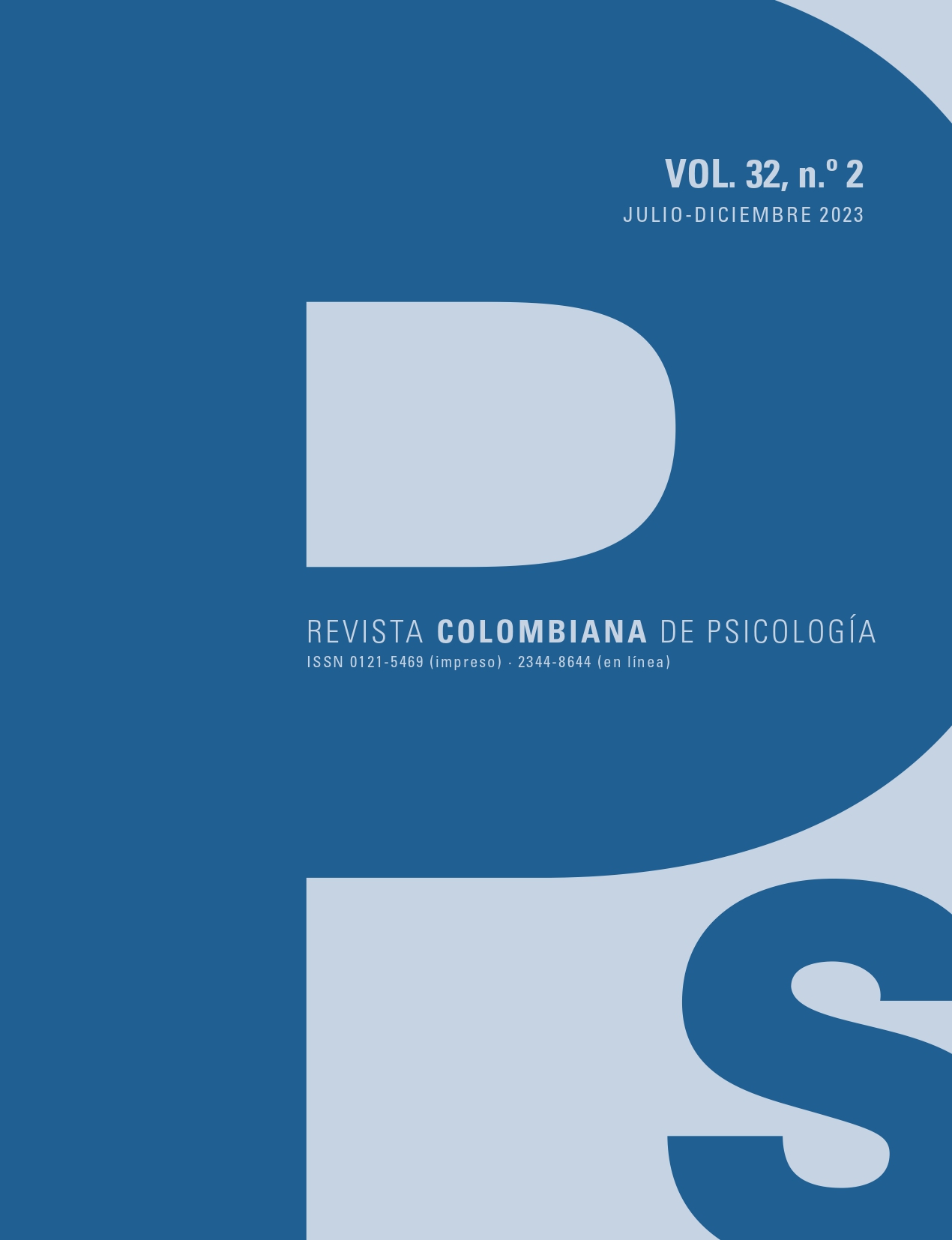Publicado
Versiones
- 2021-08-19 (2)
- 2021-08-02 (1)
Attitudes toward Learning English and Procrastination in Students from a Private Institution Specialized in Foreign Languages in the City of Lima-Peru
Actitudes hacia el Aprendizaje de Inglés y Procrastinación en Estudiantes de una Institución Privada Especializada en Idiomas Extranjeros en la Ciudad de Lima-Perú
DOI:
https://doi.org/10.15446/rcp.v30n2.83678Palabras clave:
attitude, English learning, academic procrastination (en)actitud, aprendizaje del inglés, procrastinación académica (es)
Descargas
The current study has as its objective to analyze the relationship between students’ attitude towards learning English and the procrastinating behavior at the academic level. Attitudes strengthen people’s motivation to learn a foreign language (Delfín, 2007), and procrastination, which involves unjustified delaying of activities, causes negative consequences in completing academic tasks postponement of responsibilities (Rodríguez & Clariana, 2017). The design was correlational, and the sample consisted of 55 students learning English. The instruments were the Attitudes towards English language learning questionnaire and the academic procrastination questionnaire. According to the results, evidence shows that there is a positive median relationship between the variables, leading us to conclude that despite having positive attitudes towards learning English, procrastinating behavior does not diminish. The results of this study could be utilized in bilingual programs, or those could also be utilized to implement curricula in language programs at schools or universities. The idea is that higher education institutions include, as mandatory, the instruction of English as a global language.
How to cite this article: Marquina Luján, R. J., Huaire Inacio, E. J., Horna Calderón, V. E., Villamar Romero, R. M., & Kishnani García, A. (2021). Attitudes toward Learning English and Procrastination in Students from a Private Institution Specialized in Foreign Languages in the City of Lima-Peru. Revista Colombiana de Psicología, 30(2), 27-39. https://doi.org/10.15446/rcp.v30n2.83678
El objetivo del trabajo fue analizar la relación que existe entre la actitud de los estudiantes hacia el aprendizaje del inglés y la conducta de procrastinar. Las actitudes refuerzan la motivación de las personas para aprender un idioma extranjero (Delfín, 2007) y la procrastinación, la cual tiene que ver con el aplazo injustificado de actividades, y provoca repercusiones negativas en las tareas académicas (Rodríguez & Clariana, 2017). El diseño fue correlacional y la muestra fue de 55 estudiantes de inglés. Los instrumentos fueron el cuestionario de Actitudes hacia el aprendizaje del idioma inglés y el cuestionario de procrastinación académica. De acuerdo a los resultados se evidencia que existe relación positiva media entre las variables, con lo cual se concluye que, a pesar de tener actitudes positivas hacia el aprendizaje del inglés, la
conducta de procrastinar no disminuye. Los resultados de este estudio podrían ser utilizados en programas bilingües o podrían también ser utilizados para implementar currículos de programas de idiomas en escuelas y universidades.
La idea es que las instituciones de educación superior tengan como obligación la implementación del curso de inglés como idioma global.
Cómo citar este artículo: Marquina Luján, R. J., Huaire Inacio, E. J., Horna Calderón, V. E., Villamar Romero, R. M., & Kishnani García, A. (2021). Actitudes hacia el Aprendizaje de Inglés y Procrastinación en Estudiantes de una Institución Privada Especializada en Idiomas Extranjeros en la Ciudad de Lima-Perú. Revista Colombiana de Psicología, 30(2) 27-39. https://doi.org/10.15446/rcp.v30n2.83678
Referencias
Ackerman, D., & Gross, B. (2007). I Can Start jme Manuscript Next Week, Can´t I? The Task Characteristics Behind why Faculty Procrastine. Journal of Marketing Education, 29, 97-110.
Agulló, G. (2006). Overcoming Age-related Differences. elt Journal, 60(4), 365-373.
Álvarez, O. (2010). Procrastinación general y académica en una muestra de estudiantes de secundaria de Lima metropolitana. Revista Persona, 13, 159-177. Retrieved from https://dialnet.unirioja.es/servlet/articulo?codigo=3646976
Antes, T. A. (1999). But Will I Ever Use this Foreign Language? Student Perception of the Applicability of Foreign Language Skills. Foreign Language Annals, 32(2), 219-233.
Bonilla, A., & Rojas, R. (2012). El aprendizaje de lenguas extranjeras como herramienta para el desarrollo humano. Congreso Iberoamericano de las Lenguas en la Educación y en la Cultura / IV Congreso Leer.es. Salamanca, España, 5 al 7 de septiembre.
Cenoz, J. (2003). El efecto aditivo del bilingüismo en la adquisición de una tercera lengua: una revisión. Revista Internacional de Bilingüismo, 7 (1), 71-87. https://doi.org/10.1177/13670069030070010501
Cerino, E. S. (2015). Relationships Between Academic Motivation, Self-efficacy, and Academic Procrastination. Psi Chi Journal of Psychological Research, 19(4), 156-163.
Clariana, M., Cladellas, R., Badía, M., & Gotzens, C. (2011). La influencia del género en variables de la personalidad que condicionan el aprendizaje: inteligencia emocional y procrastinación académica. Revista Electrónica Interuniversitaria de Formación del Profesorado, 14(3), 87-96.
Córdova, G. (2011). Enseñanza y aprendizaje del inglés y las pobrezas imperceptibles. Revista Electrónica Actualidades Investigativas en Educación, 11(3), 1-30.
Del Valle, J.A., Soto, C. E., Sandoval, J. L., Otárola, J. E., Valdés, M. A., & Sanhueza, H. H. (2014). Elementos asociados al idioma Mapuzungun que facilitan y/u obstaculizan el proceso de aprendizaje del idioma inglés en Estudiantes de origen mapuche. Revista de Comunicación de la seeci, año xvii (34), 1-23.
Delfín, B. (2007). Actitud de los estudiantes universitarios hacia el aprendizaje del inglés. Revista electrónica de humanidades, educación y comunicación social, 2(2), 1-35.
Demiroren, M., Turan, S., & Oztuna, D. (2016). Medical Students’ Self-efficacy in Problem-based Learning and its Relationship with Self-regulated Learning. Medical Education Online, 21(1), 1-9. https://doi.org/10.3402/meo.v21.30049
Dörnyei, Z. (2006). Individual Differences in Second Language Acquisition. aila Review, 19, 42-68.
Gálvez, D. J. (2001). Enseñanza del inglés en segundo ciclo de educación infantil. Mérida: Junta de Extremadura, Dirección General de Ordenación, Renovación y Centros.
Garzón, A., & Gil, J. (2017a). El papel de la procrastinación académica como factor de la deserción universitaria. Revista Complutense de Educación. 28(1), 307-324.Retrieved from https://revistas.ucm.es/index.php/RCED/article/viewFile/49682/50135
Garzón A., & Gil, J. (2017b). Gestión del tiempo y procrastinación en la educación superior. Universitas Psychologica, 16(3), 1-13. https://doi.org/10.11144/Javeriana.upsy16-3.gtpe
Han, Y. (2019). Written corrective feedback from an ecological perspective: The interaction between the context and individual learners. System. 80, 288-303. https://doi.org/10.1016/j.system.2018.12.009
Howell, A., & Watson, D. (2007). Procrastination: Associations with achievement goal orientation and learning strategies. Personality and Individual Differences, 43, 167-178. http://dx.doi.org/10.1016/j.paid.2006.11.017
Hwang, W. Y., Shadiev, R., Hsu, J., Huang, Y., Hsu, G., & Lin, Y. (2016). Effects of storytelling to facilitate efl speaking using Web-based multimedia system. Computer Assisted Language Learning, 29(2), 215-241,
Kobayashi, Y. (2010). The Role of Gender in Foreign Language Learning Attitudes: Japanese Female Students’ Attitudes Towards English Learning. Gender and Education, 14(2), 181-197. https://doi.org/10.1080/09540250220133021
Kurtovic, A., Vrdoljak, G., & Idzanovic, A. (2019). Predicting Procrastination: The Role of Academic Achievement, Self-efficacy and Perfectionism.International Journal of Educational Psychology, 8(1), 1-26. http://dx.doi.org/10.17583/ijep.2019.2993
Lai, M. L. (2007). Gender and Language Attitudes: A Case of Postcolonial Hong Kong, International Journal of Multilingualism, 4(2), 83-116, http://dx.doi.org/10.2167/ijm068.0.
Larsen, D., & Cameron, L. (2008). Research Methodology on Language Development From a Complex Systems Perspective. The Modern Languaje Journal, 92(2), 200-213
Lasagabaster, D. (2002). The Role of Instrumental and Integrative Attitudes in a Multilingual Context. In II Simposio Internacional del Bilingüismo. 1693-1705. Retrieved from http://ssl.webs.uvigo.es/actas2002/09/07.%20David%20Lasagabaster.pdf
Lee, E. (2005). The Relationship of Motivation and Flow Experience to Academic Procrastination in University Students. The Journal of Genetic Psychology, 166(1), 5-14. https://ddoi.org/10.3200/GNTP.166.1.5-15.
Lightbrown, P., & Spada, N. (2006). How Languages are Learned. Oxford (uk): Oxford University Press.
Littlewood, W. (2001). Student’s Attitudes to Classroom English Learning: A Cross-cultural Study. Language Teaching Research, 5(1), 3-28.
Meisenberg, G., & Woodley, M. A. (2015). Gender Differences in Subjective Well-being and Their Relationships
with Gender Quality. Journal of Happiness Studies, 16(6), 1539-1555. https://doi.org/10.1007/s10902-014-9577-5
Mitchell, R., & Myles, F. (2004). Second Language Learning Theories (2nd ed.). London: Hodder Arnold.
Onwuegbuzie, A. (2004). Academic Procrastination and Statistics Anxiety. Assessment and Evaluation in Higher Education, 29(1), 3-19.
Oroujlou, N., & Vahedi, M. (2011). Motivation, Attitude, and Language Learning. Procedia–Social and Behavioral Sciences, 29, 994-1000. https://doi.org/10.1016/j.sbspro.2011.11.333
Ozer, B. U., Demir, A., & Ferrari, J. R. (2009). Exploring Academic Procrastination Among Turkish Students: Possible Gender Differences in Prevalence and Reasons. Journal of Social Psychology, 149(2), 241-257. https://doi.org/10.3200/SOCP.149.2.241-257
Pontón, M. L., & Fernández, S. (2014). Eficacia de la enseñanza adaptativa en el aprendizaje del inglés de personas adultas. Magister, 26, 82-89. Retrieved from https://dialnet.unirioja.es/servlet/articulo?codigo=5591909
Qingquan, N., Chatupote, M., & Teo, A. (2008). A Deep Look into Learning Strategy Use by Successful and Unsuccessful Students in the Chinese efl Learning Context. relc Journal, 39(3), 338–358. https://doi.org/10.1177/0033688208096845
Rodríguez, A., & Clariana, M. C. (2017). Procrastinación en estudiantes universitarios: Su relación con la edad y el curso académico. Revista Colombiana De Psicología, 26(1), 45-60. http://dx.doi.org/10.15446/rcp.v26n1.53572
Roman-Perez (2010). Whatever Works: Electronic Chicken Soup for Reluctant esl Writers. The Clearing House: A Journal of Educational Strategies, Issues and Ideas, 76(6), 310-314 https://doi.org/10.1080/00098650309602027
Santana, J. C., García, A., & Escalera, M. E. (2016). Variables que influyen sobre el aprendizaje del inglés como segunda lengua. Revista Internacional de Lenguas Extranjeras, 5, 79–94. https://doi.org/10.17345/rile5.1004
Sirois, F. M., & Kitner, R. (2015). Less Adaptive or More Maladaptive? A Meta-analytic Investigation of Procrastination and Coping. European Journal of Personality, 29(4). 433–444. https://doi.org/10.1002/per.1985
Sosa, G., Gutierrez, B., & Velásquez, M. A. (2018). Aprendizaje del inglés, una contribución al desarrollo profesional de los ingenieros industriales. Boletín virtual, 7, 206-212.
Steel, P. (2007). The Nature of Procrastination: A Meta-analytic and Theoretical Review of Quintessential Self-regulatory Failure. Psychological Bulletin, 133(1), 65-94. http://dx.doi.org/10.1037/0033-2909.133.1.65
Sullivan, N., & Schatz, R. T. (2009). Effects of Japanese National Identification on Attitudes Toward Learning English and Self-assessed English Proficiency. International Journal of Intercultural Relations, 33(6), 486-497. https://doi.org/10.1016/j.ijintrel.2009.03.001
Sureda-Negre, J., Comas-Forgas, R., & Oliver-Trobat, M. (2015). Plagio académico entre alumnado de secundaria y bachillerato: Diferencias en cuanto al género y la procrastinación. Comunicar, 22(44), 103-111. Recuperado de https://search.proquest.com/docview/1675861535?accountid=43847
Uribe D., Gutiérrez, J., & Madrid, D. (2008). Las actitudes del alumnado hacia el aprendizaje del inglés como idioma extranjero estudio de una muestra en el sur de España. Revista internacional de didáctica de las lenguas extranjeras,(10), 85-100. Recuperado de https://dialnet.unirioja.es/servlet/articulo?codigo=2661436
Cómo citar
APA
ACM
ACS
ABNT
Chicago
Harvard
IEEE
MLA
Turabian
Vancouver
Descargar cita
CrossRef Cited-by
1. Sergio Barbosa, Johanna Sánchez-Mora, Javier Alejandro Corredor. (2024). You can’t nudge into vaccination: Comparing the effects of nudge types and Covid-19 vaccination attitudes on vaccine willingness. Journal of Health Psychology, https://doi.org/10.1177/13591053241264932.
2. Antonina Rafikova, Anatoly Voronin. (2024). Unveiling gender differences: a semantic differential approach to studying mindsets in language learning. International Journal of Multilingualism, , p.1. https://doi.org/10.1080/14790718.2024.2338735.
3. I.K. Tsalikova, S.V. Pakhotina, I.M. Kungurova, E.V. Slizkova, E.V. Voronina. (2022). Changed Tendencies in Research Issues on Motivation for Foreign Languages Learning (Review for 2021). Psychological-Educational Studies, 14(3), p.3. https://doi.org/10.17759/psyedu.2022140301.
Dimensions
PlumX
Visitas a la página del resumen del artículo
Descargas
Licencia
Derechos de autor 2021 Revista Colombiana de PsicologíaTodo el contenido de esta revista cuenta con una licencia Creative Commons “Reconocimiento, No comercial y Sin obras derivadas” Internacional 4.0. Sin embargo, si el autor desea obtener el permiso de reproducción, se evaluará cualquier solicitud de su parte.


























